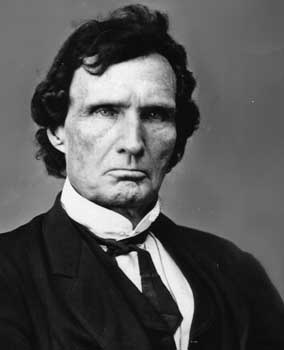
On March 4, 1861, the 37th U.S. Congress took their seats under an unfinished capitol dome in Washington D.C. in the midst of Southern Secession. A month later, overtures attempting to end the dilemma failed, and Confederate forces began bombing federal troops at Fort Sumter, S.C. Shortly after, the bloodiest four years in American history would ensue.
Amid these circumstances–with President Abraham Lincoln in the executive–the 37th session of Congress became the most productive in American history, laying the groundwork for our country’s meteoric rise in the 20th Century. This Congress lies in stark contrast to our current political moment, where gridlock, partisanship and political attacks take priority over foresight, necessity and pragmatic solutions.

As the 37th Congressional session closed in 1863, Ohio Republican Sen. John Sherman predicted that the landmark laws passed during the past two years “will be a monument to good or evil. They cover such vast sums, delegate and regulate such vast powers, and are so far-reaching in their effects, that generations will be affected well or ill by them.”
He was absolutely right. Fortunately, it was a monument for good.
With nearly a third of the seats in the Senate and the House of Representatives vacant after secession in 1861, the Southern Democrats were no longer able to obstruct a progressive legislative agenda. The newly formed Republican Party had large enough majorities in both chambers, giving Lincoln little opposition.
Led by Pennsylvania Representative Thaddeus Stevens, Ohio Senator Benjamin Wade and Massachusetts Senator Charles Sumner, the 37th Congress passed legislation that allowed America to flourish. At the core of the Republican ideology included a belief that any American had the right to become independently successful in a free labor society.
Among their first acts, The Revenue Act of 1861, helped pay for the war and served as America’s first federal income tax. Coupled with the National Banking Act of 1863, which created a system of national banks that helped foster a national currency backed by the U.S. Treasury, and two pillars of America’s economic system were formed during the 37th Congress.

While the Emancipation Proclamation was an executive order signed by Lincoln, Congress laid the groundwork for the abolition of slavery by ending the practice in Washington, D.C. in April 1862. Meanwhile, the Homestead Act of 1862 and the Pacific Railway Act ensured the American West would become a prosperous destination. In the summer of 1862, the Land Grant College Act provided each state 30,000 acres per congressional seat. Funds from the sale of that land sparked the growth of state universities around the country. One of their last items included the infamous and controversial Habeas Corpus Suspension Act of 1863.
The Northern media gave mixed reviews of the 37th Congress. The Philadelphia Inquirer said they were a “congregation of incompetents” who had shown themselves to be “without the intellect to realize the true condition of this country, and utterly without the legislative ability to provide for it if they did.”
As the Union suffered a number of high profile defeats, the apprehension surrounding Washington, D.C. was pervasive. However, in lieu of the Civil War, the legislation pushed through by the Congress from 1861-1863, is often overlooked. Their actions remain a symbol of American perseverance and clairvoyance during an existential crisis in our country.